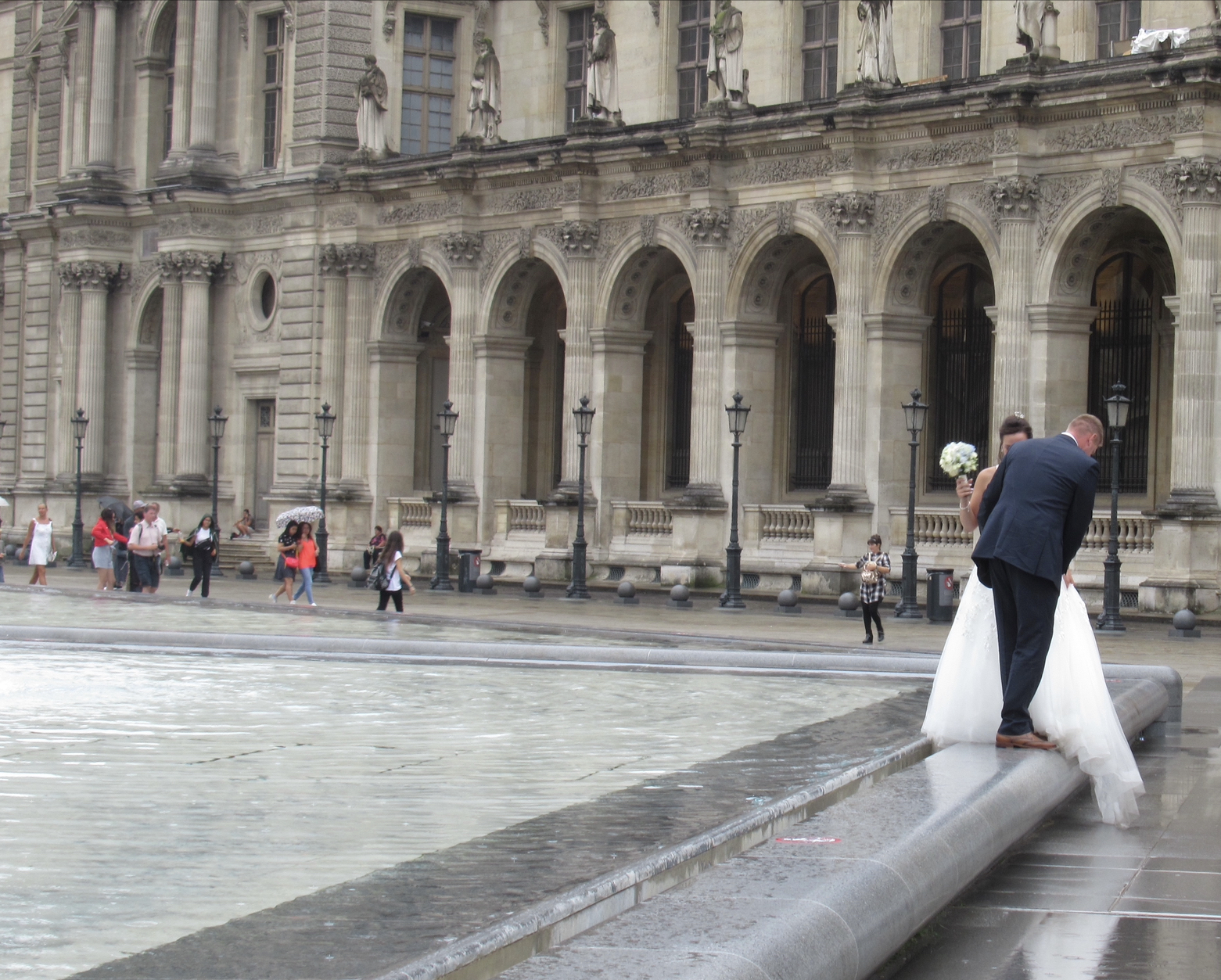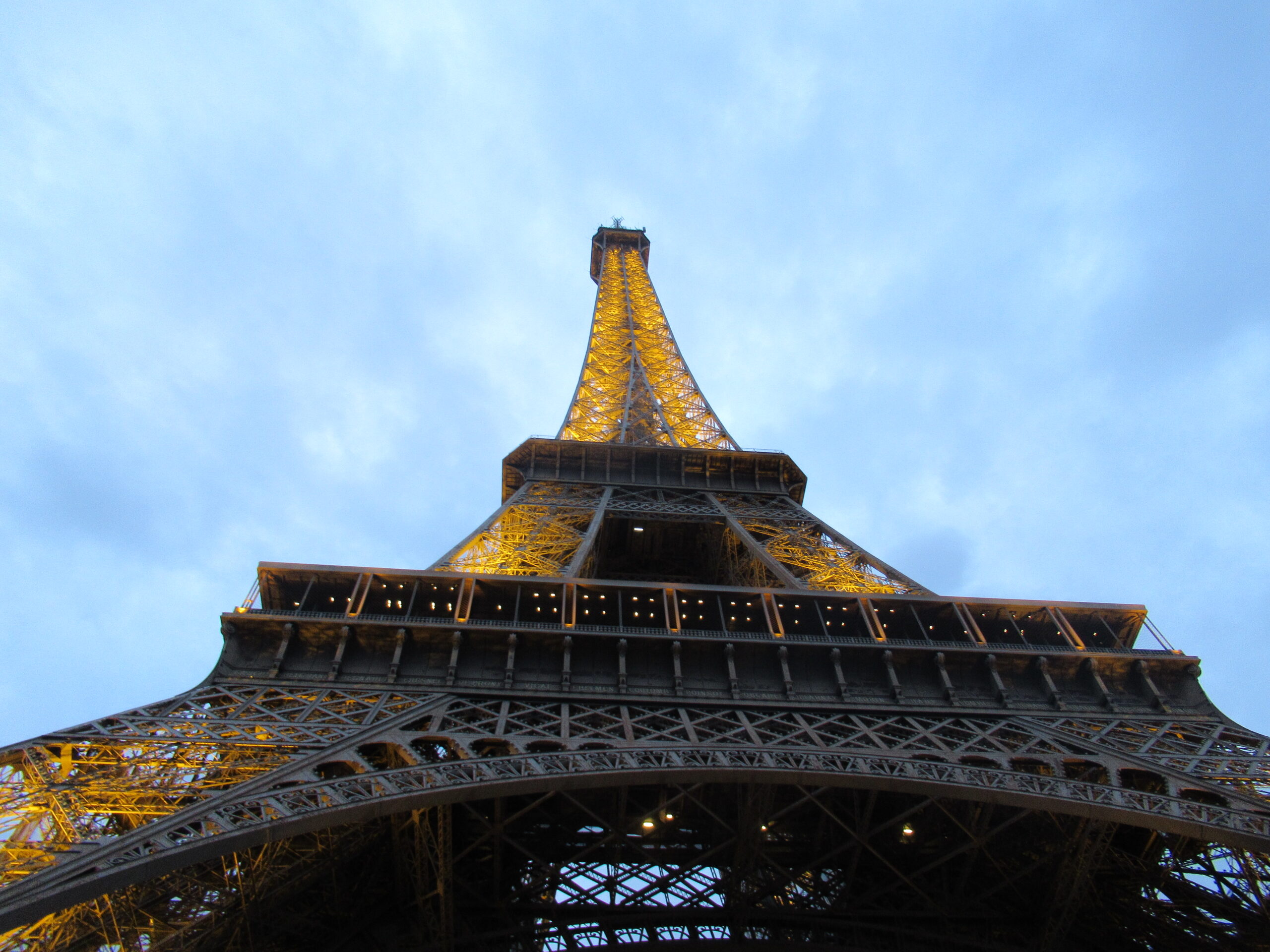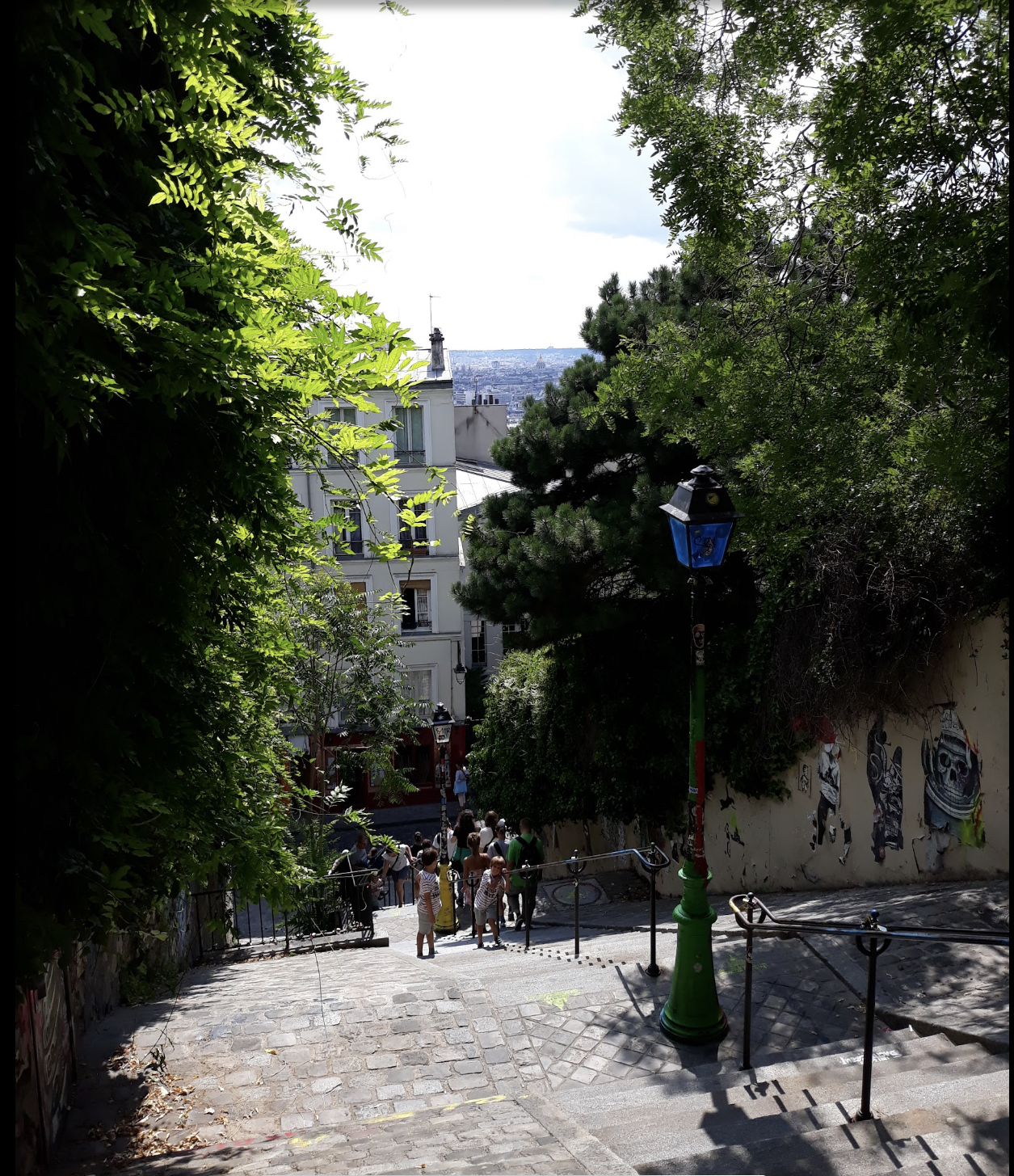By the third day of our trip, Daughter and I had recovered from our jet lag and adapted to the new time zone. Not so Husband, who was one day behind us in the adjustment period. We left him asleep at the hotel and went to see the National Archive in the morning.
This place started as the mansion of the Soubises, a medieval aristocratic family. This mansion, a made-to-order symbol of pre-Revolutionary aristocracy, became a target of the French Revolution. The buildings were confiscated by the revolutionaries, who decided the best use of them was to stuff them full of the mountains of paper documents they were accumulating. It was not a big leap to then turn it into a National Archive.
There is a fun and interesting exhibit about the history of written technologies. For most of written history, without the ability to create digital records, people came up with ways to handle paper documents, demonstrating amazing ingenuity, creating highly effective systems for organizing information without using computers and software. As we walked through the place, we came upon examples of truly imaginative paper-based libraries and filing systems to store and retrieve an enormous number of documents.
But what struck me most was the fact that we were walking through the home of one single nuclear family. Every nook and cranny of every inch of every room was ornately decorated with incredible artwork. Even if you’re not the kind of person who gets off on being jealous of the possessions of other people, it would be difficult not to be impressed by the lifestyle on display. I found myself wondering, “What would it be like to wake in my bedroom surrounded by the finest artworks of the time, by exquisitely decorated walls, desks, chairs, tables, bed linen? What would it be like to spend days entertaining guests in parlors, people who lived in similarly outlandishly rich circumstances, always surrounded with sensually evocative things? Many, many things.” I found myself slowing my pace, mentally imitating how I imagined early occupants of these mansions would act, not rushing through the rooms, deliberately slowing down to appreciate the beauty around me. Living in a place like this, how could you not feel your existence is on a par with the Divine?
It brings to mind an old movie called The Ruling Class which I saw in the cinema when it came out in 1972. The magnificent Peter O’Toole plays a British aristocrat who believes he is Jesus Christ. When someone asks him why he believes that, he explains that when he prays, well, he finds he’s just talking to himself. (I remember it as an amusing movie, at least until the second part of the story unfolds, when he decides he’s really Jack the Ripper and it gets kind of grim.)
Living in this place when it was still the Hôtel de Soubise, descended from generations of people who lived here, how could you not feel this divinity is part of your natural condition, even as you encounter the much more numerous members of society who are not part of your divine order? Craftsmen, servants, farmers – you surely see them as something less than you. Maybe a par with domesticated animals, say. And do the desperately poor and starving ever come into your field of vision? If they do, surely they would look like vermin in your eyes.
All of the histories of France that I read talked about the appalling poverty of so much of the populace. Walking through this place brought a sense of solidity to those stories. Just outside the walls of this property, there would be people with lives filled with starvation, illness, desperation. On that side of the road, I wonder what the poor themselves thought about the state of affairs. How could they tolerate such horrible treatment for so long, watching this lavish existence right in front of their eyes? Surely, they must have bought into the sense of conferred divinity that justified this cruel inequality.
Until, of course, they didn’t.
We read about the bloodiest era of the French Revolution with a certain amount of disgust. We forget, as people always manage to forget, that you just can’t treat so many people so miserably for so long and not expect them to get really, really pissed off.
As we traveled back to the hotel my thoughts were an uneasy combination of awe at the grandeur of the place, appreciation for the beauty of it all, and disgust at the implications of inhumanity it embodied.
But my mind quickly switched gears after we returned to the hotel and we found ourselves facing the question of what to eat for lunch.
During our walks through the neighborhood around the hotel, we had encountered a couple of cafés and brasseries. One of them displayed a traditional “Formule” on a chalkboard, exactly the kind of place Betsy was always looking for. The word “cheeseburger” was prominently displayed, which caught Husband’s eye. We sat.
Over lunch, we firmed up our plans for the afternoon: A visit to the Arc de Triomphe and a stroll down the Champs Elysées.



